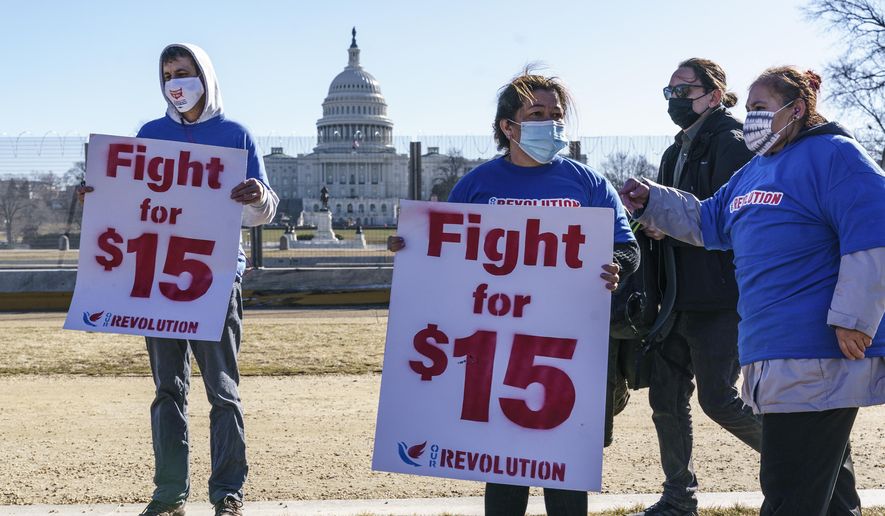House Democrats aren’t giving up on their push to increase the federal minimum wage to $15 per hour, floating ideas like attaching a wage increase to must-pass defense authorization or government funding bills to try to force the issue.
“It has to be part of must-pass legislation, whether we do it through reconciliation or if we do it through another must-pass vehicle,” said Rep. Ro Khanna, California Democrat. “We are open to alternatives.”
Mr. Khanna floated including a wage increase in the annual defense authorization bill or legislation to fund the federal government.
That would likely be a poison pill for many Republicans who point to projections that increasing the wage from $7.25 per hour to $15 by 2025 would kill 1.4 million jobs.
Mr. Khanna organized a call on Friday with other House Democrats and labor leaders to make clear they’re not giving up.
Rep. Mark Pocan, Wisconsin Democrat, and other House liberals had met with White House chief of staff Ron Klain and others at the White House this week to talk through the issue.
“There is an absolute, full commitment to getting to the 50-plus votes that we need to,” Mr. Pocan said. “As far as the secondary strategies of how exactly that’s done — [that] will happen once we have the 50 votes.
“There was a very clear commitment — both asked for and given — by the progressives in that meeting and by the White House,” he continued. “I left there feeling that it was a very genuine commitment.”
The problem for Mr. Khanna, Mr. Pocan and other Democrats is that they’re not all that close to getting 50 votes in the evenly divided Senate to raise the wage to $15 per hour — let alone the 60 votes that are needed to avert a possible filibuster if the measure is attached to the defense authorization or government funding bills.
Democrats have effective control of the 50-50 Senate thanks to Vice President Kamala Harris’s tie-breaking vote.
A stand-alone measure to raise the wage failed on a 42-58 vote in the Senate this month after the chamber’s parliamentarian said a wage increase was not allowed under the fast-track budget rules Democrats used to speed through their $1.9 trillion coronavirus relief package.
• David Sherfinski can be reached at dsherfinski@washingtontimes.com.




Please read our comment policy before commenting.